Founded in Truth Fellowship - Bible Teachings and Sermons
Founded in Truth Fellowship is a Messianic Fellowship in Rock Hill, SC that provides Biblical teachings, fellowship, and resources for Biblical studies. Founded in Truth Fellowship is able to spread the gospel and the word of Yeshua because of supporters like you. If Founded in Truth has been a blessing to you or your family, we ask that you would give so that the same messages can bless others. To give to Founded in Truth Fellowship, click this link ”https://foundedintruth.com/give”
Episodes
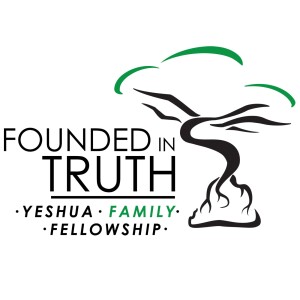
Sunday Aug 21, 2022
Sunday Aug 21, 2022
Two Davids in the Bible
Today's Bible teaching at Founded in Truth Fellowship explores the fascinating topic of how King David is presented in different parts of the Bible, drawing a parallel to the diverse artistic portrayals of David during the Renaissance period. The speaker, potentially Matthew Vander Els, begins by highlighting the human tendency to experience bittersweet feelings, similar to parents missing their children even after enjoying a moment of quiet. He then welcomes everyone and establishes the church's focus on unity in Yeshua and their appreciation for the entire Bible, including the Torah.
To provide context for understanding the different portrayals of David, the teaching delves into the Renaissance, a transformative era in Europe that began in Italy around the 14th century. This period marked a significant shift as humanity emerged from the Middle Ages, often referred to as the Dark Ages, which lasted from approximately 500 A.D. to the 1300s and was characterized by hardship and primitive conditions. The Renaissance brought about a resurgence of new ideas, creativity, and a flourishing of art and education. This era saw the rise of humanism, emphasizing the potential for human improvement and growth. Notably, the Renaissance witnessed a renewed interest in classical Greek and Roman art, including depictions of the human form, which had been largely absent for centuries.
The speaker emphasizes the profound impact of the Renaissance, highlighting the emergence of brilliant minds like Leonardo da Vinci, Galileo, Copernicus, William Shakespeare, Donatello, Raphael, and Michelangelo. This period also spurred significant inventions such as the printing press, eyeglasses, the telescope, the microscope, the steam engine, and the pencil. A pivotal development was the inspiration it provided to figures like William Tyndale, who fought to translate the Bible into English, making it accessible to a wider audience and challenging the church's exclusive control over the scriptures. Tyndale's tenacity, even in the face of being burned at the stake for his efforts, exemplifies the spirit of this awakening era.
The birthplace of the Renaissance was Florence, a wealthy Italian city that attracted artists, inventors, and politicians. The Medici family, who ruled Florence for over 60 years, were crucial patrons of this movement, commissioning numerous artworks and supporting artists like Donatello. Although Florence was technically a republic, the Medici's wealth and influence allowed them to effectively control the city. Cosimo de Medici commissioned Donatello to create two statues of David. The first, a modest marble statue, was placed at the town hall as David was a symbol of Florence. The second, a bronze statue, was placed in the center of Cosimo's palace plaza, which also served as the bank's headquarters, making it a prominent public display.
Donatello's bronze David was revolutionary for being the first nude sculpture since antiquity. This depiction showed a young, almost androgynous David, unclothed except for a hat and boots, holding Goliath's sword with Goliath's severed head under his foot. The helmet of Goliath featured Eros riding a chariot, and a feather touched David's thigh in a way that some found suggestive. This statue was controversial, seen by some as a symbol of power, greed, arrogance, and political domination by the Medici, essentially using the symbol of Florence for their own propaganda.
Later, Michelangelo created his famous statue of David, a colossal 13-foot tall marble sculpture with an enlarged right hand. Unlike Donatello's David, Michelangelo's depicts David not after defeating Goliath but as he stands fearlessly facing the giant, sling over his shoulder, ready to fight. Initially intended for the top of the Florence cathedral, it was eventually placed in the city square. This placement coincided with the exile of the Medici family in 1504, leading some to interpret it as a symbol of Republican resistance against Medici rule, with David facing towards Rome. Even after the Medici's return, the statue remained, its symbolism adaptable to whoever held power. These two Renaissance Davids illustrate how the same figure can be portrayed differently to serve various political and cultural messages.
The teaching then transitions to the Bible, revealing that King David is also portrayed in two distinct ways in the Old Testament. The books of 1 and 2 Samuel and 1 and 2 Kings were written before the Babylonian exile (around 586 BCE), while 1 and 2 Chronicles were written after the exile (after 538 BCE). The Babylonian exile was a pivotal event in Israel's history, where the southern kingdom of Judah was conquered by King Nebuchadnezzar of Babylon, the temple was destroyed, and the people were taken into captivity for 70 years. This period of exile led to the rise of numerous prophets like Isaiah, Jeremiah, Ezekiel, and Daniel, who delivered messages of repentance and hope, assuring the people that God had not abandoned them and would eventually regather them.
For more Bible Teachings, click the link.
Application for Everyday Life
Acknowledge your own complexity: Like the David in Samuel, we are all capable of both great good and significant mistakes. Recognizing this duality fosters humility and a need for God's grace.
Embrace God's forgiveness: David's story, in both Samuel and Chronicles, ultimately points to God's willingness to forgive and restore those who turn to Him.
Find hope in restoration: Just as the post-exilic Israelites found hope in the message of Chronicles, we too can find hope in God's promises of renewal and restoration in our lives, even after difficult times.
Focus on your potential in God: Similar to the idealized portrayal of David in Chronicles, we can strive to live according to our potential in God, focusing on the positive impact we can have and the good we can do.
Reflect on your life with intention: The tradition of the 40 days of Teshuvah encourages intentional reflection, similar to how the authors of Samuel and Chronicles reflected on David's life with different purposes. This practice helps us identify areas for growth and repentance.
Seek God's guidance in your endeavors: Just as David received plans for the temple from God's Spirit in Chronicles, we should seek God's wisdom and guidance in our own lives and projects.
Remember God's enduring promises: The ending of Chronicles reminds us of God's faithfulness to His promises. We can hold onto God's promises in our lives, even when facing challenges.
References
Bible Verses
Exodus 25:9
Deuteronomy (implied reference to a prophet like Moses)
1 Kings 10
1 Chronicles 28:11-19
2 Chronicles 7:13-14
2 Chronicles 36:22-23
Luke 3
Matthew 1
Books and Resources
The Bible
Note: This article contains affiliate links.

Saturday Aug 13, 2022
Saturday Aug 13, 2022
5 Mistakes When Judging Someone Biblically
Introduction
Matthew Vander Els from Founded In Truth Fellowship introduces a Bible teaching focused on the complexities of judging others from a biblical perspective. The teaching begins with a personal anecdote about his family getting sick and a reflection on his late grandmother, Cynthia, and her unconventional choice of colorful masks, highlighting how easily we can form assumptions without knowing the full story. The core message of this teaching revolves around the idea that while assessments and evaluations might be necessary in certain contexts, making judgmental assumptions and condemning others is a dangerous habit for believers. The speaker emphasizes that Yeshua (Jesus) had strong words against judgmental people, particularly the religious leaders of his time. This teaching will explore five common mistakes people make when judging others biblically.
The Problem with Judgment
The teaching highlights our human tendency to not only make assumptions about others but also to build entire narratives based on these assumptions, often leading to criticism and judgment. This behavior often stems from a desire to elevate our own status by lowering others. The scripture from Matthew 7:1-5 is central to this discussion, where Yeshua commands, "Judge not, that you be not judged". He uses the powerful imagery of a speck in someone else's eye compared to a log in our own to illustrate the hypocrisy of pointing out others' flaws while ignoring our own significant shortcomings. Our tendency towards judgment echoes the temptation in the Garden of Eden, where humanity sought to discern good and evil autonomously from God, positioning themselves as the ultimate arbiters of right and wrong. This act of judgment devalues others and implies a lack of trust in God's ultimate judgment.
Navigating Judgment Biblically
While we are cautioned against judgmental condemnation, the teaching acknowledges that evaluation and discernment are sometimes necessary. For instance, we need to be able to identify false prophets. Paul also makes stern judgments within the church in situations involving blatant sin. The key distinction lies in the motivation and the spirit behind our assessments. Biblical judgment, when necessary, should be rooted in love, seek reconciliation and healing, and aim for the betterment of others, rather than destruction or condemnation. The love of Yeshua should guide any form of judgment.
Five Mistakes When Judging Someone Biblically
Mistake Number 5: Failing to Realize How Terrible We Are at Judging People
One of the most significant mistakes we make is underestimating our own inability to judge others accurately. We often judge from a place of ignorance, lacking complete information about someone's life, experiences, and motivations. A personal story is shared about the speaker's assumptions about a man he encountered at a Neil deGrasse Tyson event. Based on the man's appearance and the language he was speaking, the speaker quickly fabricated a stereotypical narrative about him being a poor, recent immigrant. However, upon speaking with the man, he discovered he was a highly educated chemical engineer from Ethiopia who had lived in the US for decades. This humbling experience illustrates how easily our assumptions can be wrong and how we tend to project our own biases and perspectives onto others. Even when someone appears to be a "sinner," we still lack the full picture of their struggles, their past, and the reasons behind their actions.
Mistake Number 4: Forgetting That We Don't Have to Have an Opinion About Everything and Everyone
Another common mistake is feeling compelled to form and express an opinion on every matter and every person we encounter. We are not required to have a judgment on every situation or individual. The Roman Emperor Marcus Aurelius is quoted, emphasizing that we always have the option of having no opinion and that we shouldn't trouble our souls over things we can't control. We don't need to nitpick and constantly find fault with others. The world, influenced by Satan, often pushes us to take sides and view those who disagree as enemies. However, we don't have to participate in every debate or offer our unsolicited opinions. Random people we see are not asking for our judgment. We are not entitled to have people as an audience for our opinions. Choosing not to judge unnecessarily is a sign of maturity and helps us maintain our own well-being.
Mistake Number 3: Forgetting Who We Are and Who We Are Not
We often forget our own limitations and assume a role that belongs to God alone. James 4:11-12 warns against slandering and judging our brothers and sisters. When we judge others, we speak against the law (likely the Royal Law of loving our neighbor as ourselves) and sit in judgment upon it. There is only one Lawgiver and one Judge, which is God. Who are we to judge our neighbors? When we make negative interpersonal judgments, we are essentially taking the position of God, building a metaphorical Tower of Babel to exalt ourselves. It is not our job to constantly criticize and condemn others in non-destructive situations. Every individual has immeasurable value in the eyes of God, equal to our own. If someone offends us, we should seek safety, but not use revenge as an excuse for wicked judgments, as God will ultimately be the judge.
Mistake Number 2: Ignoring the Rotting Corpses in Our Closets
A harsh but necessary truth is that we often fail to acknowledge our own significant flaws while being quick to judge others. Matthew 7:3-5 vividly portrays this with the image of a log in our own eye compared to a speck in our brother's eye. Yeshua uses exaggerated imagery to highlight the delusional reality we live in when we judge others while being blind to our own sins. The point of this metaphor is to bring us back to reality. While others may indeed have issues ("a speck in their eye"), we must first focus on our own shortcomings ("the log in our own eye"). We cannot genuinely help someone with their flaws if we haven't addressed our own unresolved sins. Proceeding to judge others without dealing with our own "log" makes us hypocrites.
Mistake Number 1: Forgetting We Pull the Cord on Our Own Guillotine
The most critical mistake we make when judging others is that our judgment of others ultimately reflects and determines the judgment we will face ourselves. Romans 2:1-10 is cited to emphasize this point. When we judge others, we condemn ourselves because we, the judges, often do the same things. By judging others harshly, absent of humility, patience, kindness, mercy, grace, and love, we essentially invite the same fate upon ourselves. We are "pulling the cord" on our own guillotine because we have taken God's seat as judge and have despised His kindness, restraint, patience, and mercy towards us, failing to recognize that His kindness is intended to lead us to repentance.
Application for Everyday Life
Practice self-awareness: Recognize your tendency to make quick judgments and assumptions about others.
Seek more information: Before forming an opinion, try to understand the full context of a situation and the other person's perspective.
Grant the freedom of "no opinion": Remind yourself that you are not obligated to have a strong stance on every issue or person.
Focus on your own growth: Instead of criticizing others, dedicate your energy to addressing your own shortcomings.
Lead with compassion and love: When you must address an issue, let your motivation be rooted in love.
Pray for those you are tempted to judge: Use prayer as a litmus test for your true intentions.
Remember God's role as the ultimate Judge: Trust that God will ultimately bring justice.
Examine your own heart: Reflect on whether you are extending the same kindness, patience, and grace to others that you desire from God.
For more Bible Teachings, visit our website.
Note: This article contains affiliate links.
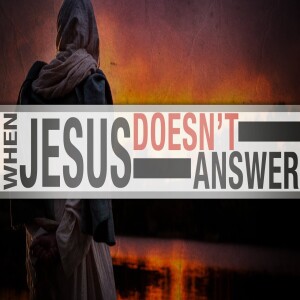
Saturday Jul 30, 2022
Saturday Jul 30, 2022
When Jesus Doesn’t Answer Questions
In a teaching delivered at Founded in Truth Fellowship, the focus is on the intriguing way Jesus, or Yeshua as referred to, often responded to inquiries. Instead of providing straightforward answers, Jesus frequently posed questions in return. This approach wasn't due to a lack of knowledge; the speaker asserts that Yeshua, being in constant communion with God, possessed all the answers. Rather, this method served a deeper purpose, inviting his listeners, then and now, to engage in deeper reflection and cultivate understanding rather than simply receiving information.
The teaching highlights that questions are powerful tools for education and learning. While Google can provide instant answers, true understanding requires processing information, grappling with concepts, and explaining them in one's own words. By asking questions, Jesus encouraged critical thinking and moved people beyond surface-level knowledge. This method allowed individuals to develop their own wisdom and navigate complex situations effectively. As the speaker notes, having the answer is different from understanding the answer; understanding enables one to solve other problems and navigate future inquiries more adeptly.
The speaker, likely Matthew Vander Els, illustrates this point by examining various instances in the Gospels. Jesus asked approximately 183 questions and only directly answered around eight, or perhaps as few as three, depending on interpretation. Conversely, he himself asked 307 questions. This significant disparity underscores the importance Jesus placed on the process of inquiry and contemplation.
One early example cited is from Luke chapter 2, where a young Yeshua, at the age of twelve, is found in the temple engaging the teachers, not just answering but also asking questions, to the amazement of those present. When his concerned parents, Mary and Joseph, find him after searching for three days and ask why he treated them this way, Yeshua responds with questions of his own: "Why were you searching for me? Didn't you know I had to be in my Father's house?" This early interaction sets a pattern for his ministry.
The teaching emphasizes that Jesus’ questions often challenged preconceived notions and invited deeper reflection on his message, what it meant to be his follower, to love God, and to have right relationships with others. His questions weren't always seeking information; sometimes they were rhetorical, designed to provoke thought or make a point. Examples include "Can any of you, by worrying, add a single hour to your span of life?"
Furthermore, Jesus' questions served to move beyond stereotypes and encourage seeing individuals as human beings with inherent value. The story in Luke chapter 7 of the woman anointing Jesus' feet at the Pharisee Simon's dinner illustrates this. Simon judges the woman based on her known sinful lifestyle. Jesus, aware of Simon's thoughts, poses a question about two debtors who are forgiven different amounts and then asks Simon, "Do you see this woman?" The speaker explains that this question wasn't about physical sight, but about truly seeing her as a person beyond the stereotype, someone capable of deep love and gratitude due to the forgiveness she had received.
Another powerful example is found in Mark chapter 10 with the blind man Bartimaeus calling out to Jesus. Despite the crowd's attempts to silence him, Jesus asks, "What do you want me to do for you?" Although the man's need seemed obvious, Jesus' question demonstrated humility and respect, acknowledging that the man might have deeper needs beyond the apparent one. This highlights the importance of asking and listening rather than presuming what others need.
In Luke chapter 10, a teacher of the law asks Jesus, "What must I do to have eternal life?" Instead of a direct answer, Jesus directs him back to the scriptures: "What does the Torah say? How do you interpret what the Torah says?" When the teacher responds correctly about loving God and neighbor, he then seeks to justify himself by asking, "And who is my neighbor?" Jesus responds with the parable of the Good Samaritan, challenging the teacher's limited definition of neighbor and emphasizing that mercy transcends social and cultural boundaries. Jesus concludes by asking, "Which of these three do you think was a neighbor to the man who fell into the hands of robbers?"
The teaching extends to the concept of loving one's enemies, as presented in Luke's Sermon on the Plain. Jesus poses rhetorical questions about the merit of loving only those who love you or doing good only to those who do good to you, noting that even sinners do that. Instead, he calls for a higher standard: love your enemies, do good to them, and lend to them without expecting anything in return, reflecting God's own kindness and mercy towards the ungrateful and wicked.
The speaker applies these principles to contemporary issues, such as societal divisions, political polarization, and responses to events like the emergence of new health concerns. The emphasis is on resisting the urge to create "us versus them" mentalities and instead approaching others with humility, grace, and a willingness to understand their humanity. Just as Jesus asked, "Do you see this woman?" or "What do you want me to do for you?", believers are called to ask similar questions, truly seeing and seeking to understand and help those around them, even those with whom they disagree or who are different.
To find more Bible Teachings, click the link.
Application for Everyday Life
Cultivate Curiosity: Instead of always seeking quick answers, embrace the power of asking questions to gain deeper understanding in conversations and when learning new things.
Practice Empathetic Inquiry: When interacting with others, especially those with different viewpoints, ask open-ended questions to understand their perspectives and motivations rather than immediately judging or offering solutions.
Challenge Stereotypes: Recognize your own biases and assumptions, and actively seek to see individuals beyond labels and stereotypes, acknowledging their shared humanity. Ask yourself, "Do I truly see this person?"
Extend Compassion and Mercy: Reflect on the extent of forgiveness and grace you have received and let that inform how you treat others, even those you might consider your "enemies."
Respond with Humility: When faced with conflict or opportunities to help, approach others with a servant's heart, asking "What can I do for you?" rather than presuming to know their needs.
Prioritize Understanding Over Agreement: In discussions and debates, aim to understand the other person's perspective, even if you don't agree with it. This aligns with Jesus' method of encouraging reflection.
Reflect on Your Motivations: Regularly ask yourself, "What am I truly looking for?" in your pursuits and relationships, ensuring that your focus is aligned with the values of Jesus.
Resources Mentioned
Jesus is the Question: The 307 Questions Jesus Asked and the Three He Answered by Martin Copenhaver
Note: This article contains affiliate links.
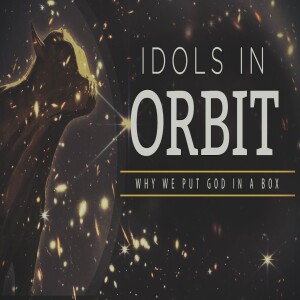
Saturday Jul 16, 2022
Saturday Jul 16, 2022
Idols in Orbit - Why We Put God in a Box • How Big is God? | Seek First the Kingdom of God | Sermon
The Awe-Inspiring Vastness of Space and Our Limited Perception
Matthew Vander Els begins by sharing his excitement about the images from the James Webb telescope. He notes that while we have a conceptual understanding of the vastness of space, actually seeing the deep space images provides a more profound sense of its scale. The Hubble telescope, launched a long time ago, was a significant achievement, but the James Webb telescope is described as 100 times more powerful in reading infrared light, allowing us to see farther into deep space than ever before.
One of the first images shown is of the Southern Ring Nebula, also known as the Eight Burst Nebula, an expanding cloud of gas surrounding a dying star that is nearly half a light-year in diameter and 2,000 light-years away from Earth. To put this in perspective, traveling at the speed of light, which is the fastest speed possible, it would take six months to cross the nebula and 2,000 years to reach it from Earth, and this is still within our Milky Way galaxy.
Another image is of the Carina Nebula, specifically a section called the Cosmic Cliffs, located 8,500 light-years away, still within our galaxy. Then, the speaker discusses the Galaxy Cluster SMACS 0723, a deep field image containing countless galaxies, each similar to our Milky Way. A video is shown to illustrate the scale: the area of the sky captured in this image is equivalent to the size of a grain of sand held at arm's length.
This overwhelming sense of the universe's size can lead to a feeling called cosmic vertigo, a genuine sense of being overwhelmed by the sheer vastness of the cosmos. The speaker poses a thought-provoking question: if the size of the universe evokes such a profound feeling, why is a similar sense of being overwhelmed so unfamiliar when we consider the vastness of God?
Putting God in a Box: Control and Fear
The teaching then shifts to the idea that we often tend to put God in a box to make Him easier to worship. This desire to make God smaller can stem from a lack of trust in difficult circumstances or a yearning to be in control ourselves. The temptation in the Garden of Eden, to eat from the tree of knowledge of good and evil, was about wanting to be like God, ultimately driven by a desire for control.
The core reasons why we put God in a box are identified as control and fear, which are interconnected. We desire control because it makes us feel safe and secure, or it allows us to dominate others. This desire for control mirrors the original sin of reaching for the fruit to determine good and evil for ourselves. When we trade trust in God for knowledge of God, the result is often fear and uncertainty. Adam's response to God after eating the forbidden fruit – hiding because he was naked and afraid – illustrates this point.
This desire for control and fear has consequences, leading to conflict and violence in the world. The speaker uses the example of a mass shooting motivated by fear of losing power and privilege due to changing demographics. This echoes the fear that led Abraham and Isaac to lie. Sarah's decision to give Hagar to Abraham was also driven by a lack of trust in God's promise and a desire to take control.
Even though we may acknowledge God's goodness and control, we often struggle to trust Him in our circumstances, leading us to scramble for control. The speaker references Matthew 6:25-34 about not worrying, acknowledging how challenging it can be to fully embrace this trust. Ultimately, the message is one of trust: trusting that God is bigger than our problems and our fears.
The Idolatry of Control: Historical Examples
The teaching explores how humanity has historically tried to control or limit God. The Israelites at Mount Sinai were overwhelmed by God's presence and asked Moses to be their intermediary. However, when Moses was on the mountain for 40 days, the people, fearing an untamable God, pressured Aaron to create golden calves. They declared, "These are your gods, O Israel, who brought you out of the land of Egypt." Aaron even proclaimed a feast to the Lord, indicating they saw the calf as a representation of Yahweh, a tamed and controllable version of God they preferred. This highlights our tendency to desire a God we can manage rather than a limitless one.
The story of Jonah further illustrates this tendency to put God in a box. Jonah was displeased when God showed mercy to Nineveh, a city he believed deserved destruction. Jonah wanted God's grace and judgment to align with his own limited understanding and desires for control. He was angry that God broke out of his "box" of expected behavior and showed untamed grace and mercy.
Theological Debate vs. Obedience and Love
The speaker emphasizes the difference between knowing about God and truly trusting and obeying Him. The serpent in Genesis 3 engaged in a theological debate with Eve, treating God as a third party and twisting His words. Walter Brueggemann is quoted as saying, "The serpent is the first in the Bible to seem knowing and critical about God and to practice theology in the place of obedience."
Knowing the Bible is important, but it is meaningless without action rooted in trust and love. Using theological knowledge to control or condemn others is likened to being the serpent. True followers of Jesus are known by their love, a love that extends even to enemies. Jesus consistently broke societal standards by showing grace, mercy, and love to those considered outcasts.
We are called to be image bearers of God, speaking life and pouring out energy for the benefit of others, even our enemies. This means serving, not seeking to manipulate or control. Condemning from a distance is easier than building authentic relationships and showing genuine care. The world is waiting to see a God they can trust, and our actions are the "resume" of the God we serve.
Instead of using the Bible as a weapon to feel powerful, we should yield to God. The strategy Jesus taught for correcting the world is rooted in love, demonstrated through empathy and connection. We must practice catching ourselves when we judge and instead seek to love others. True theology leads to action and obedience.
Applications for Everyday Life
Recognize the tendency to control: Be aware of situations where you feel an overwhelming need to be in control, and consider if this stems from fear or a lack of trust in God.
Cultivate trust in God's bigness: When faced with overwhelming circumstances, remember the vastness of the universe and the even greater vastness of God's power and love.
Examine your theological lens: Ensure your understanding of God doesn't limit His power, grace, or mercy based on your comfort or preferences.
Prioritize obedience over mere knowledge: Put your faith into action by obeying God's commands, especially the command to love others.
Practice love and empathy: Engage with others, even those you disagree with, with love, empathy, and a desire for their well-being, rather than judgment and condemnation.
Serve others self-sacrificially: Look for opportunities to serve those in need, reflecting the love and actions of Jesus.
Be aware of hypocrisy: Check your own heart and actions for inconsistencies between your beliefs and behavior.
Focus on unity and peace: Make an effort to maintain unity and peace within the community of believers, bearing with one another in love.
Speak truth in love: When addressing issues or correcting others, ensure it is done with genuine love, care, and relationship.
Let go of fear: Trust in God's perfect love, which casts out fear, allowing you to love others more fully.
To find more Bible Teachings, visit our website.
Join us at Founded in Truth Fellowship for more teachings and fellowship.
Note: This article contains affiliate links.
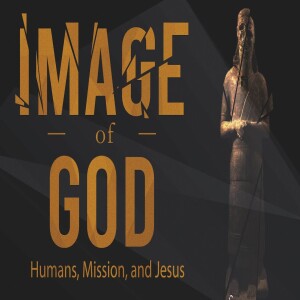
Saturday Jul 09, 2022
Saturday Jul 09, 2022
The Image of God - Humans, Mission, and Jesus
In this insightful Bible teaching from Founded in Truth Fellowship, Matthew Vander Els explores the profound concept of humanity being created in the image of God. He begins by inviting listeners to consider their search for something bigger than themselves, a community rooted in truth and love, and a place to worship God. The teaching then delves into the overarching narrative of the Bible, suggesting that it culminates in the mission embodied by Jesus (Yeshua).
Vander Els emphasizes that the creation account in Genesis 1-3 is foundational, portraying God's initial design and intentions for humanity. He highlights the state of the earth before creation – tohu vavohu, often translated as formless and void, a desolate and watery chaos. God's method of creation is through speech, signifying the power and authority inherent in His word. The Hebrew word for create, bara, not only implies bringing something into existence but also giving it function and purpose.
The pivotal moment comes in Genesis 1:26-28, where God declares, "Let us make mankind in our image, in our likeness." Vander Els stresses that this applies to all humanity, both male and female. He points out the shift from singular ("mankind," "his own image") to plural ("them," "he created them"), indicating that God desires a community of image-bearers who co-rule together. This community is commanded to be fruitful, increase in number, fill the earth, and subdue it, exercising dominion over creation. This subduing (kava) implies authoritative rule, akin to a king, and even suggests the trampling of sin.
To understand this role better, Vander Els examines the meaning of "image," the Hebrew word tselem. In the ancient world, tselem referred to statues, particularly idols representing pagan gods and statues of kings placed in temples or at borders to signify their authority. These statues were not seen as having power themselves but as representing and channeling the power of the deity or king. Vander Els argues that in the creation story, God doesn't create a physical statue of Himself but instead creates humanity to fill that role – to be His proxy on earth. Just as idols in pagan cultures were believed to be vessels for the spirit of the god, humans are intended to reflect God's will and character within creation.
The teaching further explores Genesis 2:7, where God forms man (Adam) from the dust (Adama) and breathes the breath of life (ruach) into his nostrils, making him a living being. This act of God molding man like a clay statue, a tselem, and then animating it with His spirit is presented as a profound act of significance. Vander Els emphasizes that this significance extends to all humans, regardless of their abilities or background, their purpose being to reflect God's reign and creative motives. The intention was for these image-bearers to fill the earth in unity, reflecting God's will towards each other and creation.
For more Bible Teachings, click the link.
Application for Everyday Life:
Recognize the inherent worth and dignity of every person you encounter, understanding that they are created in God's image. This should influence how you treat and speak to everyone, regardless of their background or beliefs.
Act as God's representative in your sphere of influence, reflecting His love, justice, and compassion in your actions and decisions.
Use your words to speak life, encouragement, and truth. Be mindful of the power of your tongue and avoid using it to condemn or belittle others.
Cultivate empathy and seek to understand the perspectives of those who hold different views. Engage in conversations with a genuine desire to listen and understand their concerns.
Look for opportunities to actively participate in creating a more life-giving world. This could involve supporting organizations that care for the vulnerable, volunteering your time, or advocating for policies that promote human flourishing.
Be self-sacrificial in your efforts to help others, mirroring God's outward-pouring nature.
Stand up against injustice and advocate for those who are oppressed or marginalized, reflecting God's concern for the cries of the oppressed.
Remember that your mission as an image-bearer extends beyond personal piety to actively engaging with the world around you.
Continuously strive to reflect the perfected image of God, which is Jesus Christ, in all aspects of your life.
Be aware of the tendency to weaponize your beliefs and instead focus on extending grace and understanding to others.
References:
Genesis 1:26-28 (Biblehub)
Psalm 33:6 (Biblehub)
Habakkuk 2:18 (Biblehub)
Jeremiah 10 (Biblehub)
Genesis 2:7 (Biblehub)
Ezekiel 37 (Biblehub)
Psalm 8 (Biblehub)
James 3:10 (Biblehub)
Ephesians 1:9 (Biblehub)
Hebrews 1 (Biblehub)
Matthew 25 (Biblehub)
Books and Resources Mentioned:
Breath of Life, Speech, Gender and Authority in the Garden of Eden
Books on this topic
Note: This article contains affiliate links.
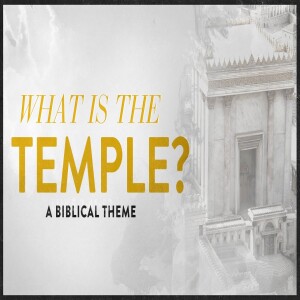
Saturday Jun 25, 2022
Saturday Jun 25, 2022
Sure! Please provide the content you'd like me to format with internal links, and I'll ensure it follows your specified structure and formatting rules.
Note: This article contains affiliate links.
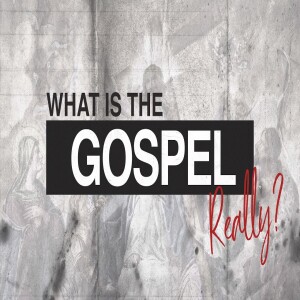
Saturday Jun 18, 2022
Saturday Jun 18, 2022
Sure! Please provide the content you'd like me to format with internal links, and I'll ensure it follows your specified structure and formatting rules.
Note: This article contains affiliate links.
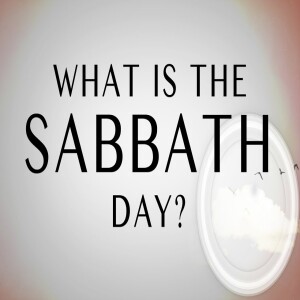
Saturday Jun 11, 2022
Saturday Jun 11, 2022
What is the Sabbath?
In this Bible teaching delivered by Matthew Vander Els at Founded in Truth Fellowship, the concept of the Sabbath is explored as more than just a weekly day of rest. It is presented as a central theme woven throughout the entire biblical narrative, beginning with creation and pointing towards an ultimate, eternal rest found in Jesus Christ (Yeshua). The message emphasizes understanding the Sabbath not merely as a commandment to be followed, but as a profound invitation to enter into God's rest, reflecting His character and His plan for humanity.
The teaching begins by examining the creation account in Genesis 1 and Genesis 2. God created the heavens and the earth in six days and rested on the seventh day, making it holy. Notably, unlike the conclusions of the first six days ("And there was evening and morning"), the seventh day has no such ending, suggesting an ongoing, eternal nature of God's rest. This initial act of divine rest introduces the concept of the Sabbath from the very beginning of the biblical story.
Furthermore, the speaker highlights the unique portrayal of humanity in Genesis 1. Instead of being created as slaves to work for the gods, as in other ancient Near Eastern creation myths like the Babylonian Enuma Elish, humans are created in God's image (the Hebrew word "Selim") to be His representatives and even to co-rule over creation. This sets a stark contrast where the biblical God desires relationship and shared dominion with humanity, rather than servitude.
The Sabbath commandment is formally introduced to the Israelites in Exodus 16 in the context of gathering manna, where they were instructed to gather twice as much on the sixth day because the seventh day would be a Sabbath rest. Later, it is included in the Ten Commandments in Exodus 20, with the justification that God rested on the seventh day after creating the world in six days. Deuteronomy 5 provides a slightly different reason, linking the Sabbath to the remembrance of Israel's liberation from slavery in Egypt. Both reasons work together, highlighting God's example and His act of redemption.
Application for Everyday Life:
Recognize the human need for rest in a society that often glorifies constant work and productivity. The Sabbath provides an opportunity to cease from labor and reflect.
Find your ultimate rest in Jesus Christ. He is presented as the Lord of the Sabbath, and true spiritual rest is found in a relationship with Him.
Remember your freedom from spiritual "slavery". Just as the Sabbath reminded Israel of their liberation from Egypt, it can remind believers of their freedom from sin and the burdens of striving for self-righteousness.
Look forward to the eternal rest promised in God's kingdom. The weekly Sabbath can serve as a foretaste of this ultimate rest.
View the Sabbath as an invitation to dwell with God. It is a time to focus on spiritual connection and communion with Him.
Consider the broader implications of Sabbath rest for your life and community. This includes examining whether you are contributing to exploitation or injustice and whether you are caring for the vulnerable. True Sabbath rest should align with God's character of justice and mercy.
Examine your motivations for observing any day of rest. Is it out of obligation to a past law, or is it an expression of the present reality of rest found in Christ and a longing for the future eternal Sabbath?
To find more Bible Teachings, click the link.
References:
Bible Verses:
Genesis 1
Genesis 2
Exodus 16
Exodus 20
Deuteronomy 5
Leviticus 23
Leviticus 25
Leviticus 26
Numbers 7
Psalm 95
Isaiah 56
Isaiah 61
Jeremiah 31
Ezekiel 36
Luke 4
Hebrews 3
Hebrews 4
2 Chronicles 36
Judges 19
1 Kings
Books and Resources:
The Bible by various authors
Note: This article contains affiliate links.
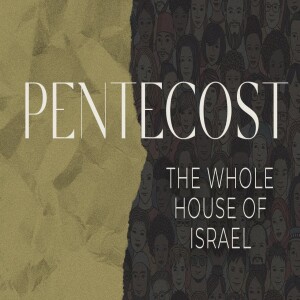
Sunday May 22, 2022
Sunday May 22, 2022
Pentecost and the Whole House of Israel • What is Shavuot? | Shavuot and Jesus | The Lost Tribes
This Bible teaching from Founded in Truth Fellowship, delivered by Matthew Vander Els, explores the deep connections between the Jewish festival of Shavuot and the Christian celebration of Pentecost. It delves into the historical context of Shavuot, its prophetic significance in the Old Testament, and its ultimate fulfillment in the outpouring of the Holy Spirit in Acts chapter 2.
The Jewish Roots of Pentecost: Shavuot
The teaching begins by establishing that Pentecost, which occurred 50 days after Passover, is the Greek name for the Hebrew festival of Shavuot, meaning "weeks." Shavuot was one of the three major pilgrimage festivals in the Jewish religious calendar, alongside Passover and Sukkot (the Feast of Tabernacles). During these festivals, the Israelites were commanded to travel to Jerusalem and bring first fruit offerings to the Lord as a sign of gratitude for the harvest.
Deuteronomy chapter 16 describes these three pilgrimage festivals, highlighting that Shavuot took place in the summer and involved offering the first fruits of the wheat harvest. This festival was observed 50 days after the offering of the first barley harvest during Passover week, hence the name Pentecost, derived from the Greek word for fifty. The speaker emphasizes the significance of this offering, explaining that in an agrarian society, the harvest was essential for life, and a successful harvest was seen as a direct blessing from God. Bringing the first fruits was an act of thanksgiving for God's faithfulness in providing rain and sustenance. This practice is presented as the root of the modern tradition of tithing, where a portion of one's provision is given back as an expression of gratitude.
The celebration of Shavuot was a time of joy, dancing, and a sense of divine peace. Families would create beautiful baskets to carry their offerings to the temple in Jerusalem, highlighting the importance and celebratory nature of the event. The speaker suggests that modern society might have a harder time fully grasping the profound gratitude associated with these harvest festivals, given our less direct connection to agricultural cycles.
Prophetic Promises and the Kingdom of Israel
The teaching then shifts to the Old Testament prophecies concerning the future of Israel. After the reign of King Solomon, the unified kingdom of Israel split into the northern kingdom of Israel and the southern kingdom of Judah. Both nations fell into idolatry and disobedience, leading to their eventual exile by the Assyrian and Babylonian empires. During this period of exile, prophets like Hosea, Ezekiel, Isaiah, and Malachi arose, carrying messages of repentance and future hope.
The prophecies spoke of a time when God would regather the scattered Israelites and restore the kingdom under a shepherd king from the lineage of David. Ezekiel chapter 34 depicts God as the ultimate shepherd who would rectify the failures of the earthly kings and care for his people. Verse 23 of Ezekiel 34 specifically mentions that David would be the shepherd, raising the question of whether this refers to the historical David or a future descendant with divine authority. The speaker clarifies that the prophets often united human royalty with divine control, indicating a future king from David's line who would rule with God's authority.
Ezekiel chapter 37, with the vision of the valley of dry bones, further emphasizes the promise of restoration and resurrection for the defeated and scattered people of Israel. Verse 24 of Ezekiel 37 reiterates that a descendant of David would be king over them, uniting them under one shepherd and establishing an everlasting covenant of peace. These prophecies instilled hope in the exiled Judeans for a future return to their land, the rebuilding of the temple, and the reestablishment of their kingdom under a righteous king.
The Disciples' Question and the Arrival of Pentecost
Even after the ministry, death, and resurrection of Jesus (Yeshua), the expectation of a restored kingdom of Israel remained strong among his followers. As recorded in Acts chapter 1, the disciples asked Jesus, "Lord, are you at this time going to restore the kingdom of Israel?" This question reveals their continued focus on the prophetic promises of national restoration. Jesus responded that it was not for them to know the timing but redirected their attention to the coming of the Holy Spirit, through whom they would receive power to be his witnesses throughout the world.
Acts chapter 2 recounts the events of Pentecost, which occurred while the disciples were gathered in Jerusalem. Significantly, this coincided with the Jewish festival of Shavuot, a time when devout Jews from "every nation under heaven" would have been in Jerusalem for the pilgrimage. Instead of the people bringing offerings to God, God poured out his Holy Spirit upon the believers. This was manifested by the miraculous ability of the disciples to speak in other languages, allowing the diverse crowd to hear the wonders of God declared in their own native tongues.
Pentecost: Fulfillment and New Creation
The speaker highlights Luke's deliberate emphasis on the diverse national origins of the people present in Jerusalem, listing 15 different regions. This emphasis mirrors Old Testament prophecies, such as Isaiah 11, which foretold the regathering of Israel from the nations to which they had been scattered. The miracle of speaking in tongues served as a powerful sign, connecting the scattered Judeans in a new and profound way.
Peter's sermon in Acts chapter 2 explains the meaning of these events. He declares that Jesus is the promised shepherd king, risen from the dead and exalted to the right hand of God, reigning even now. Peter argues that the outpouring of the Holy Spirit and the gathering of people from all nations signify the fulfillment of the Old Testament prophecies concerning the new covenant, the ingathering of exiles, and the reign of the Davidic king. He proclaims that Jesus is the one who brings this reconstitution of Israel, not as a political entity but as a spiritual body. The new temple being raised up is not a physical building but a growing community of believers indwelt by God's Spirit, destined to expand throughout the world.
To find more Bible Teachings, click the link.
Application for Everyday Life
Cultivate Gratitude: Reflect on God's provision in your life, both material and spiritual, and express gratitude like the Israelites bringing their first fruits.
Embrace Diversity: Recognize and value the diversity within the body of Christ and in the wider world, understanding that the Holy Spirit works across cultures and languages.
Seek the Holy Spirit: Acknowledge the Holy Spirit as a gift that brings life, power, and guidance, drawing you closer to Jesus.
Be an Ambassador of Life: Allow the Holy Spirit to work through you to bring forth spiritual life, demonstrating the fruit of the Spirit in your interactions with others.
Participate in the Kingdom: Recognize that the kingdom of God is a growing reality that you are invited to be a part of.
Repent and Be Transformed: Respond to the work of the Holy Spirit by turning away from sin and embracing the forgiveness offered through Jesus Christ.
Find Unity in Christ: Despite differences, strive for unity with fellow believers through the common bond of the Holy Spirit.
Offer Hope in Chaotic Times: Trust that the Holy Spirit can bring order and life to the chaotic areas of your life.
Use Your Abilities for Good: Use your abilities, empowered by the Holy Spirit, to benefit others and further God's kingdom.
Be a Witness: Share the message of hope, grace, forgiveness, and mercy that is found in Jesus Christ.
Note: This article contains affiliate links.
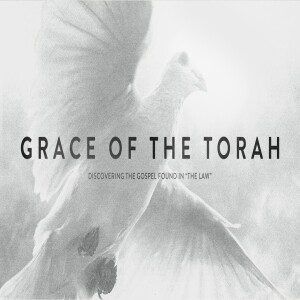
Saturday May 14, 2022
Saturday May 14, 2022
Grace of the Torah - Discovering the Gospel in the Law • Messianic Teaching about the Torah | Jesus
Understanding the Torah: More Than Just Laws
In a recent teaching at Founded in Truth Fellowship, the speaker, Matthew Vander Els, delved into the profound significance of the Torah, the first five books of the Bible: Genesis, Exodus, Leviticus, Numbers, and Deuteronomy. Often referred to as "the law," the speaker argued that viewing the Torah solely through the lens of legislation misses its deeper purpose and genre. He suggested that the Torah is primarily a narrative, a story of God's interaction with humanity, beginning with creation and tracing His covenant relationship with Abraham and the nation of Israel.
Many individuals, particularly those raised in church traditions, might have been taught to overlook much of the Torah, focusing only on a few key stories. However, the speaker contended that there is immense value and understanding to be gained from exploring these foundational texts. While acknowledging the presence of numerous laws and commandments within the Torah, he emphasized that these laws are embedded within the overarching narrative and serve to contribute to the unfolding story of God's redemptive plan.
The speaker highlighted a crucial question that arises from the study of the Torah: What is its central message or point? He discussed common misconceptions, such as the idea that the Torah was a means for the Israelites to achieve salvation through obedience. He countered this by citing the Apostle Paul's teaching that Abraham was justified by faith, not by adherence to the law. Another perspective suggests that the law was given to demonstrate humanity's inability to keep it, thus highlighting the need for a savior. While acknowledging the role of the law in revealing sin and the necessity of God's grace, the speaker cautioned against viewing it solely as an oppressive burden that God intended to inflict upon Israel.
God's Grace in the Torah: A Privilege, Not a Burden
The speaker passionately argued that the Torah reveals God's grace and that obedience to it was intended to be a response to that grace, not a means of earning it. He drew attention to Moses' words in Deuteronomy, where he emphasizes that the decrees and laws were given so that Israel might live and be seen by other nations as wise and understanding. Moses declared that other nations would be envious of Israel's privilege of having their God so near to them and possessing such righteous decrees and laws. This perspective reframes the commandments not as a heavy burden, but as a distinctive privilege granted by a loving and intimate God.
To illustrate this point, the speaker contrasted the Israelite experience with an ancient Sumerian prayer from a pagan worshipper. This prayer revealed a deep sense of sin, accountability to unknown deities, and a desperate plea for pacification from divine wrath, without any clear understanding of the offense committed or how to find resolution. The speaker highlighted the stark difference: Israel had a clear knowledge of Yahweh's will, a God who spoke to them, listened to them, and provided a way for reconciliation despite their transgressions. This intimate relationship and clear guidance were the very reasons why other nations would envy Israel.
The key to understanding the meaning behind the Torah's statutes and commandments, according to the speaker, is grace. It was by God's grace that these laws, saturated with righteousness, were given to Israel. They served to reveal God's character, expose sin, and show how sin could be removed through the provisions within the Torah, such as Yom Kippur, allowing for a relationship of peace and confidence with God.
Deuteronomy: Passing on the Legacy of Grace
The speaker focused particularly on the book of Deuteronomy, which means "second law" or "repeated law." This book recounts Moses' final address to the Israelites before they entered the Promised Land, summarizing their journey from Egypt and reminding them of God's acts and commands. Moses foresaw a time when future generations would ask their parents, "Why do we do these things?" These children, having no direct memory of the Exodus or the covenant at Sinai, would observe their parents living differently from the surrounding cultures and would seek to understand the meaning behind their traditions and practices.
Moses provides the answer to this crucial "why" question in Deuteronomy. He instructs the Israelites to tell their children that their unique lifestyle and obedience to God's commands are a response to God's saving power and grace. They were to remember and recount how God rescued them from slavery in Egypt, performed great wonders on their behalf, and brought them out to fulfill His promises. The purpose of the Torah was not for salvation, as the Israelites had already been saved by God's grace. Rather, obedience was a demonstration of their love and gratitude for His redemptive acts.
The speaker drew a parallel to the New Testament, highlighting John 1:16-17, which states that grace and truth came through Jesus Christ, emphasizing that this was not in opposition to the grace already present in the giving of the law through Moses. Just as ancient Israel celebrated and embraced the Torah as a privilege and a response to God's grace, believers in Jesus should also find joy in obedience as a response to God's ultimate gospel salvation.
The crucial message, the speaker emphasized, is the transmission of the testimony of God's supreme grace to the next generation. Forgetting God's goodness, as seen in Judges 2, leads to a generation that does not know the Lord or His grace and seeks fulfillment elsewhere. The speaker then shared a modern rephrasing by Old Testament scholar Daniel Block of how a believer might answer the "why" question today: we live this way because we were slaves to sin, but the Lord rescued us through the work of Christ. Our obedience is an expression of our fear and love for Christ, for our good and survival as His people.
Application for Everyday Life
Reflect on God's saving grace: Regularly remember and appreciate the ways God has shown grace in your life, both historically and personally. Let this gratitude be the primary motivation for your actions.
See obedience as a response, not a burden: View God's commands and principles not as a restrictive checklist, but as an opportunity to express your love and thankfulness for His salvation.
Engage with the Torah: Don't neglect the first five books of the Bible. Approach them as a narrative that reveals God's character and His initial covenant relationship with His people, understanding the laws within this historical context.
Answer the "why" for the next generation: Be prepared to explain to your children and others the reasons behind your faith and lifestyle, emphasizing God's grace and the saving work of Jesus Christ as the foundation.
Live as a witness to God's nearness: Strive to live in a way that reflects the intimacy and accessibility of God in your life, so that others might see and be drawn to Him.
Pursue justice, love, and mercy: Let your actions be motivated by the gracious character of God, extending these qualities to those around you, even when it goes against the norms of the world.
Find joy in worship and generosity: Participate in community and support causes that align with God's kingdom out of a spirit of gratitude for all that He has done.
To find more Bible Teachings, click the link.
Note: This article contains affiliate links.






